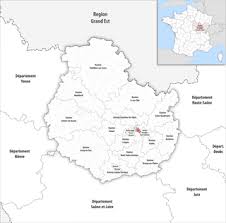Discover the Charm of Dijon: A French Gem

Introduction
Dijon, the capital of the Burgundy region in France, is a city renowned for its rich history, exceptional gastronomy, and vibrant culture. As one of France’s most important historic cities, it has become increasingly relevant in contemporary discussions about tourism and gastronomy. With its world-famous mustard, beautiful medieval architecture, and dynamic art scene, Dijon is not just a culinary delight but also a historical treasure. This article delves into what makes Dijon an attractive destination for both locals and tourists.
A Rich Historical Background
Established in Roman times, Dijon has served as a key political and cultural hub for centuries. The city’s historic centre, a UNESCO World Heritage site, boasts numerous well-preserved buildings from the 15th to 18th centuries, showcasing exquisite architecture. Significant landmarks include the Palace of the Dukes of Burgundy and the Church of Notre-Dame, famous for its intricate owl statue, which locals rub for luck. Recently, the city has made efforts to preserve its history while embracing modernity. This balance between the old and new has enhanced its appeal.
Culinary Highlights
One cannot mention Dijon without acknowledging its place in the culinary world, especially in relation to mustard. The city is home to the famous Dijon mustard, considered the finest in the world. To celebrate this culinary heritage, Dijon hosts the annual “Fête de la moutarde” (Mustard Festival), where visitors can taste various mustard varieties and learn about local culinary practices. Additionally, Dijon is surrounded by vineyards and is a gateway to the Burgundy wine region, making it an ideal location for wine enthusiasts and food lovers alike.
Current Events and Tourism Development
As of late 2023, Dijon has been actively enhancing its tourism infrastructure. The city’s recent initiatives promote sustainability within the tourism sector and encourage eco-friendly travel options. A new network of cycling routes has been introduced to connect key attractions, catering to the increased demand for cycling tourism amidst growing environmental awareness. Furthermore, cultural events such as arts and music festivals have been revitalised, drawing visitors from around the globe.
Conclusion
In conclusion, Dijon is a city that artfully blends its rich history with contemporary culture and gastronomy. Its historical significance, coupled with ongoing tourism development initiatives, underscores the city’s relevance as a destination worth visiting. For anyone planning a trip to France, Dijon offers an engaging, enriching, and delicious experience that encapsulates the essence of French culture. As tourism continues to develop and adapt, Dijon stands poised to attract even more visitors seeking a unique blend of history, art, and gourmet delights.









